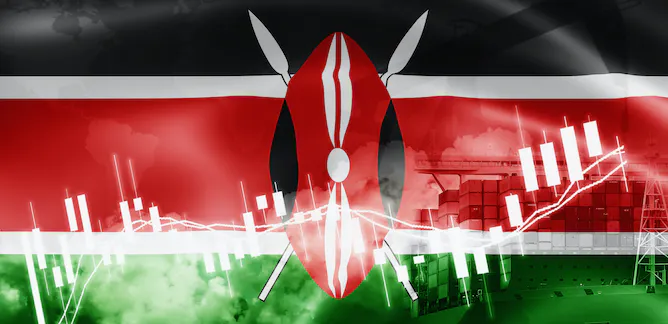Kenya’s debt level has reached record highs despite President William Ruto’s vow to tame the country’s appetite for loans, treasury figures show.
Total public debt rose by a record 1.56 trillion shillings ($10.8 billion) in the financial year ended June 30 to 10.1 trillion shillings ($70.75 billion), breaching a debt ceiling of 10 trillion shillings, according to the data released Tuesday.
“The increase in the public debt is attributed to external loan disbursements, exchange rate fluctuations and the uptake of domestic and external debt,” the Treasury said.
Loan repayment costs, mainly to China, have shot up as the local currency trades at record lows of around 144 shillings to the dollar.
The cost of debt servicing in the year ended June was 391 billion shillings ($2.7 billion), of which the highest payment — 107 billion shillings ($743 million) — went to China.
The debt load has prompted warnings from global credit ratings agencies including Fitch Ratings which last month downgraded Kenya’s ability to repay international lenders from “stable to negative”, citing tax hikes and social unrest.
Kenyan lawmakers voted in June to change the debt ceiling from a fixed shilling amount to a proportion of the country’s gross domestic product (GDP). The Senate is yet to pass the amendment.
Ruto came to power last year on a promise to revive the economy in the country of about 53 million people.
Economic growth slowed to 4.8 percent in 2022 from 7.6 percent the previous year and is forecast to expand by more than five percent this year, according to the International Monetary Fund (IMF).
Outlining his plan for a “bottom-up” economic transformation, Ruto promised to slash government debt and introduce policies putting money in the pockets of impoverished Kenyans.
But his first act after taking office in September last year was to cut food and fuel subsidies introduced by his predecessor Uhuru Kenyatta, saying he preferred subsidizing production instead of consumption.
In June, Ruto introduced new taxes that increased prices for basic goods such as fuel and food and mobile money transfers, as well as a controversial levy on all taxpayers to fund a housing scheme.
But in a U-turn on Monday, his administration reinstated a fraction of the fuel subsidy following several rounds of deadly anti-government protests and public anger over the high cost of living.
The subsidy “to cushion consumers from the spike in pump prices” will last for a month, the country’s energy regulator said.
“Expectations of higher international oil prices and the possibility of further shilling weakness will test the government’s commitment to contain fuel prices in the coming months,” think tank Oxford Economics Africa said Tuesday, adding that the subsidy was against the wishes of the IMF.
Kenya is one of the most dynamic economies in East Africa but about a third of the population lives in poverty.
Inflation in Kenya has remained stubbornly high, at an annual rate of 7.3 percent last month.
Ruto has insisted the tax hikes are needed to create jobs and fill government coffers and ease over-reliance on borrowing.

